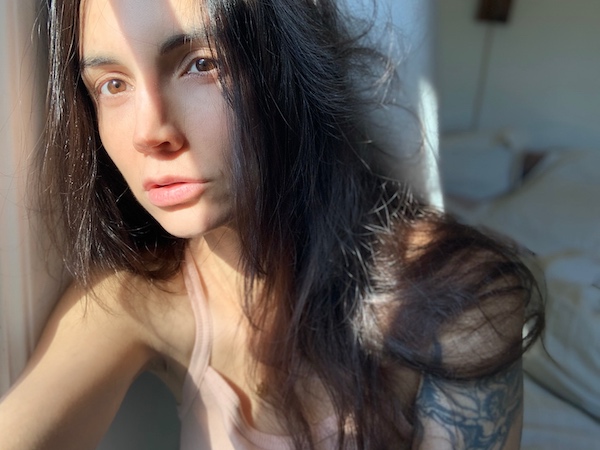This article is part of a regular series of conversations with the Review’s contributors; read past ones here and sign up for our email newsletter to get them delivered to your inbox each week.
In the January 13, 2022, issue of the magazine, Anahid Nersessian reviewed the sociologist Eva Illouz’s book The End of Love, a study of the fragility of intimate relationships under late capitalism. Nersessian took issue with its premise that the freedom to casually enter and exit romantic or sexual entanglements is either a concerning or a new phenomenon, citing eighteenth-century proponents of free love like Mary Wollstonecraft and her anarchist partner William Godwin, who called monogamy “the most odious of all monopolies,” sounding not so far off from any of Brooklyn’s young polyamorists.
An English professor at UCLA, Nersessian’s area of expertise is eighteenth- and nineteenth-century British and European literature, with a focus on the Romantic period. “A person could make a pretty convincing argument that we’re still living in the same long historical moment as the Romantics,” she told me in an e-mail this week:
They saw the rise of modern capitalism and we’re living through its collapse. There are differences of course, but if you read, say, Percy Shelley’s treatise on vegetarianism, you’ll find him bemoaning the loss of arable land to industrial agriculture and specifically to cows—a crisis that’s only gotten worse since 1813.
She was drawn to Romanticism after an intense early engagement with Keats. Her most recent book, Keats’s Odes: A Lover’s Discourse, “half-criticism and half-memoir,” was inspired by this encounter. “I was a pretty lonely, extremely rebellious teenager who took a lot of hard knocks in school; my father is from Iran, which didn’t make me too popular,” she said:
Keats’s poetry was an unexpected lifeline for me, not for any particular reason other than that it’s just so beautiful and strange. The book is really a tribute to him, a way to say thanks for everything. It’s also about love, sex, harm, and heartbreak, and about the relationship between poetry and revolution.
She avoided writing poetry herself, other than “a tiny bit in college, mainly to see how the other half lives and what a poem looks like from the inside.” And, she wrote, “Thank goodness! Many of my closest friends are poets, and it seems like a pretty serious affliction.”
Nersessian’s dissertation advisor was the late, celebrated cultural theorist Lauren Berlant, and like Berlant, her literary scholarship often addresses political questions: her two academic books are about the relationship in Romantic writing between poetry and capital, art and utopia. “I think of myself as a poetry scholar with side interests in political philosophy and the history of literary criticism,” she told me. She is also an editor of Thinking Literature, a series of books about criticism published by the University of Chicago, and she was previously the managing editor of the journal Environmental Humanities. “The environmentally engaged work that interests me most isn’t usually academic in nature,” she elaborated. “I’m more drawn to the work of visual artists like Sky Hopinka or poets like Juliana Spahr, to more imaginative and allusive attempts to grapple with planetary crisis.”
I wondered how she dealt with the complex relationship between literature and history in her own work—as she argues in her essay in the Review, relying on novels to understand the past can distort one’s vision of it. “It’s very tempting to use literature to confirm a hypothesis you already have about the world. For better and for worse, though, fictional texts don’t always give us good information about reality,” she explained:
Another danger can be to lean too hard on canonical literature that tells an “official” story about what life or people or relationships were like in such-and-such a time. If you ask a classicist, they’ll tell you that Plato—a member of an elite, all-male, free, and politically enfranchised class—is not your best informant for how the vast majority of ancient Athenians were living their lives, having sex, or negotiating intimacy.
Perhaps understandably for a scholar with an interest in utopia, if less expectedly for a scholar of criticism, Nersessian believes in the importance of pressing forward with new visions rather than just critiquing existing ideas and systems. “I think lots of people believe the world right now is pretty bad—politically, ecologically—and that capitalism is responsible for a very large part of the situation. But being against capitalism doesn’t entail being for anything else,” she said:
It’s all very well to say “capitalism turns us into commodities, that’s degrading, human beings shouldn’t be degraded.” But how should we be treated, and how should we live? What would love and sex—among other things, like health care or having a job—look like in a good world? It’s important to take the risk of answering those questions, even if the answers are messy and provisional.



